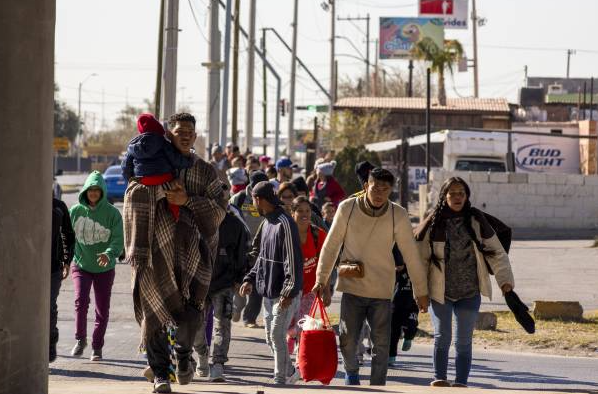The Biden administration has urgently requested the US Supreme Court to address a controversial Texas law that criminalizes unauthorized entry into the state. This plea follows a federal appeals court’s decision to uphold the law, granting Texas authorities the power to arrest and detain individuals suspected of illegal border crossings.
The potential Supreme Court review could significantly impact the immigration debate, a central issue in the upcoming 2024 presidential election. It would also add another contentious case to the court’s docket, which already includes matters such as voting rights and gun laws.
Senate Bill 4, the Texas law in question, has been challenged on the basis that it allows states to establish their own immigration policies, a domain traditionally reserved for the federal government. In January, the US Justice Department filed a lawsuit against Texas and Governor Greg Abbott, arguing that the law violates the US Constitution, which stipulates that federal law supersedes state laws.
A Controversial Texas Law Challenged in the Courts

While a federal judge initially blocked the implementation of SB4 in February, the Fifth US Circuit Court of Appeals later issued a stay, allowing the law to proceed. The Supreme Court now has until March 9th to intervene.
The Texas government defends its law, citing constitutional rights to enact immigration laws in response to an “invasion,” likening migrants to a foreign enemy. However, legal experts question the validity of this argument.
In its plea to the Supreme Court, the Biden administration argues that unauthorized immigration does not constitute an invasion under the state war clause. Even if it did, the clause does not permit states to countermand the federal government’s response to such an invasion.
Critics of SB4, including human rights groups, warn that the law could lead to racial profiling, particularly targeting Latinos, who account for over 40% of Texas’s population. The American Civil Liberties Union has condemned SB4 as “extreme Texas legislation,” expressing concerns that it could separate families and subject people of color to the state’s troubled prison system.
The fate of SB4 now hangs in the balance as the Supreme Court weighs whether to intervene in this contentious immigration dispute.
